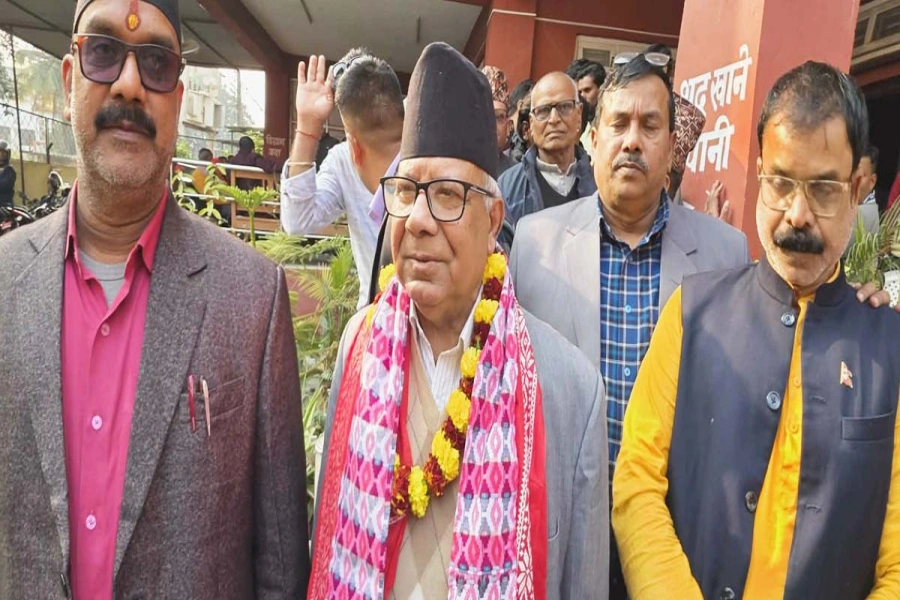The US is taking a liberal approach toward cryptocurrencies. On 9th March 2022, President Joe Biden put out an executive order calling on the government to examine the risks of crypto assets to protect US-based people and businesses interacting with virtual digital assets, abolish illegal crypto activity, and explore the possibility of creating a Central Bank Digital Currency.
As of writing this article, cryptocurrencies have crashed wiping away almost USD 1 Trillion worth of value in a month proving a solid justification for the countries that have banned cryptocurrencies. Even before the crash, Bitcoin and other cryptocurrencies were fully banned in a close to dozen countries and implicitly banned in another fifty countries with restrictions on banks from dealing with cryptocurrencies or outlawing cryptocurrency exchanges. These countries have implemented the ban by stating that investors have to be protected in the speculative crypto market and that cryptocurrencies are being used to channel money to illegal sources. The real reason behind the ban is the fear of this relatively new crypto phenomenon that has the potential to destabilize the archaic global financial architecture. On the other hand, Democratic countries like the US and India are not interested in stifling innovation by putting a blanket ban on cryptocurrencies andare cautiously exploring ways to regulate them.Nepal also needs to remove the ban and aim for smart regulations to legalize cryptocurrencies.
The US is taking a liberal approach toward cryptocurrencies. On 9th March 2022, President Joe Biden put out an executive order calling on the government to examine the risks of crypto assets to protect US-based people and businesses interacting with virtual digital assets, abolish illegal crypto activity, and explore the possibility of creating a Central Bank Digital Currency (CBDC). Soon after the President’s executive order, Janet Yellen, the US Treasury Secretary, said that her department is planning for more regulations to police cryptocurrencies and other digital assets to prevent fraudulent and illicit activities as well as reduce cryptocurrency’s risk to the current financial system and that the Treasury Will Also work with the White House and other agencies to recommend a regulatory framework to ensure innovation does not lead to a fragmentation of international payment architecture.
On 10th May 2022,at an annual testimony before the Senate Banking Committee, Secretary Yellen stated that the risks of cryptocurrencies are growing by the day as the cryptocurrency market is now larger than the subprime mortgage market which triggered a global financial crisis in 2008,therefore, the Treasury will soon issue a comprehensive report on cryptocurrencies and stablecoins. She also urged US Congress to come up with stablecoins legislation by the year-end especially because the sharp decline in the value of cryptocurrencies shows additional federal regulations are needed to respond to the wave of speculative investment in the currency whose secrecy is an essential part of its appeal, therefore, a comprehensive regulatory framework is needed urgently.
India is calling for a global framework to prevent cryptocurrencies frombeing used for money laundering and financing terrorist activities. Recently at a global platform, the Indian Finance Minister Nirmala Sitharamanargued cryptocurrencies can only be regulated effectively when countries join hands and that India will be revealing cryptocurrency regulations soon as the Reserve Bank of India is planning to issue blockchain technology-based Central Bank Digital Currency (CDBC).
India proposes law to ban cryptocurrencies, create official dig...

Last April, at the Union Budget 2022,Minister Sitharaman,announced a 30 percent tax on gains on cryptocurrencies and other digital assets. The tax is only on the income (profit) from the investment.The levied taxis already very steep compared to stocks or mutual funds and it seems more bad news is on the horizon for the Indian crypto investors.The Goods and Services Tax (GST) Council, the highest decision-making body on indirect taxes, is considering levying28 percent GSTon cryptocurrencies in addition to the 30 percent income tax on earnings from crypto-asset transactions.
The status quo is still not excited about cryptocurrencies, especially Bitcoin.The decentralized nature of the bitcoin network eliminates a single point of failure making it extremely difficult to be hacked or to be shut down. The bitcoin network can only be shut down by shutting down the Internet. The peer-to-peer bitcoin transaction lets the users have full control of their money without needing third-party intermediaries like the banks. Since Bitcoin does not require banks to act as a trust institution, governments cannot block Bitcoin transactions. At the same time, government oversight is still necessary to discourage the terror and criminal networks from exploiting the architecture.
Bitcoin also inverts the power structure of a few people at the top controlling many people at the bottom. In an ideal situation, power shifts to the individual as anyone with an internet connection can engage economically with anyone else on the planet. The asset can be transferred without using the banks and dodging government censorship. People are attracted to Bitcoin not to engage in illegal activities, but to seek protection from hyperinflation and government-imposed capital controls.So, democratic countries like the US and India are only interested in regulating Bitcoin to ensure the technology is not being used by criminals and terrorists.
Bitcoin protects against unstable fiat currency and government control in extremely mismanaged economies like Venezuela and Zimbabwe. Simply put, Bitcoin provides monetary sovereignty outside the control of the government policy which can be a good thing in extremely corrupt countries where governments do not have the competency to develop effective monetary policies.In such countries, the crypto-anarchists libertarian dream of circumventing governments’ capital control becomes appealing.
Late Timothy C. May, an American technical/political writer and electrical engineer who worked as a senior scientist at Intel, was the founder of the crypto-anarchist movement. In 1988, he wrote “Crypto Anarchist Manifesto” introducing the basic principles of crypto-anarchism, encrypted exchanges, total anonymity, total freedom of speech, and total freedom of trade. Timothy May predicted that advances in computer technology would eventually allow people to interact with each other anonymously and without government intrusion. While writing the manifesto, he had anticipated the government’s discontent with such disruptive technologies. In the manifesto, he wrote, “The State, will, of course, try to slow or halt the spread of technology (cryptography), citing national security concerns, use of the technology by drug dealers and tax evaders, and fears of social disintegration.”
The Disciples of Timothy May believe virtual communities are laboratories for conducting experiments to ultimately construct new societies and governance structures.The utopian crypto-anarchists dream is far from reality, but with the synergy of ever-growing online citizens, superior governance structures will surely emerge in the future. More importantly, the shift is long due because our modern political system came out of the industrial revolution of the 18th Century which was known for massive organizations, centralized parliamentary democracy, and centralized control.
The world is already on the cusp of theFourth Industrial Revolution characterized by endless choice, the internet, data, automation, blockchain, and artificial intelligence. The economy, identity, and the essence of what it is to be human are all starting to change, and our politics will have to change with it. The rise of sharing economies, reputation models, digital contracts, artificial intelligence, and cryptocurrencies will propel us toward decentralized democracy.
Bitcoin is a disruptive force of decentralization demolishing conventional hierarchical organizations to build new networked ones. In 2021, Jack Dorsey and Jay-Z said they want to make Bitcoin the “internet’s currency.” They gave a total of 500 Bitcoins, roughly worth $24 million (at the time of giving) to an endowment called Btrust to fund the development of Bitcoin because people should be able to send money across the world as easily as sending an email. This idea might seem eccentric, butit is a logical step toward creating a fertile environment for new political movements and governance structures to come alive.
A global crypto regulatory body should be created to better coordinate cryptocurrency rules. Smart regulations are necessary to protect consumers and drive innovation. Therefore,the real task for cryptocurrency regulators is to create a rules structure that both protects the public and promotes industry innovation- not to trade off one against the other. Simply put, cryptocurrencies need more regulations, not less and ban is never a solution.
Bitcoin is much more than currency. It is a disruptive invention that has granted humanity the possibilities of creating decentralized organizations on a scale never before seen on this planet.







































